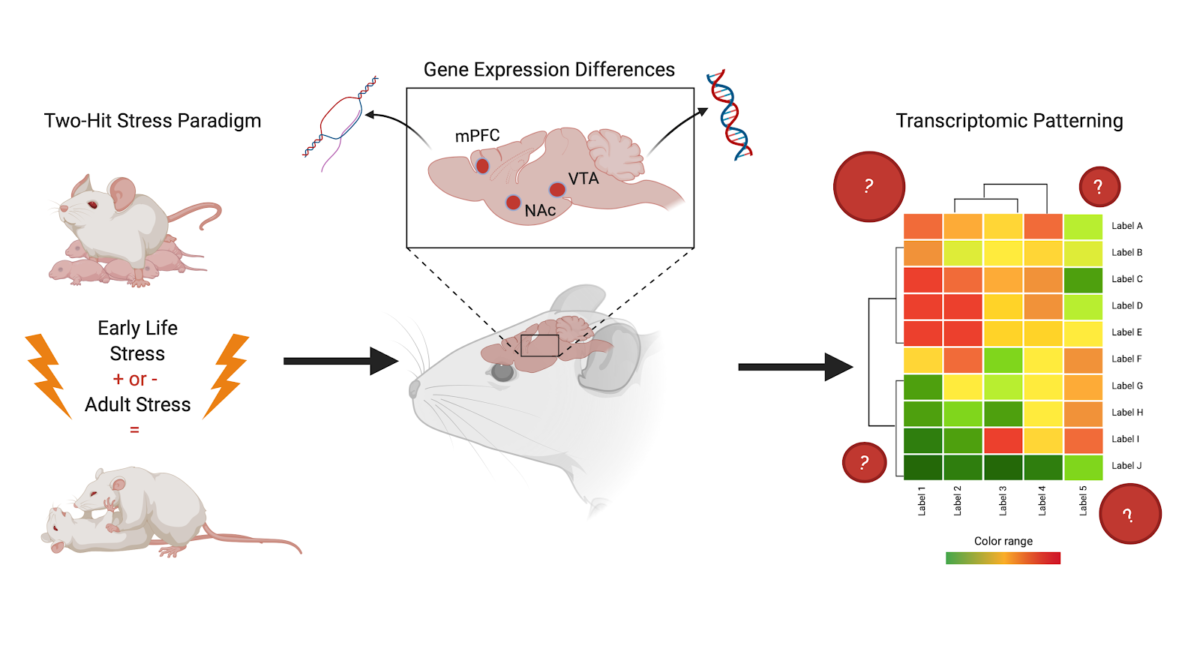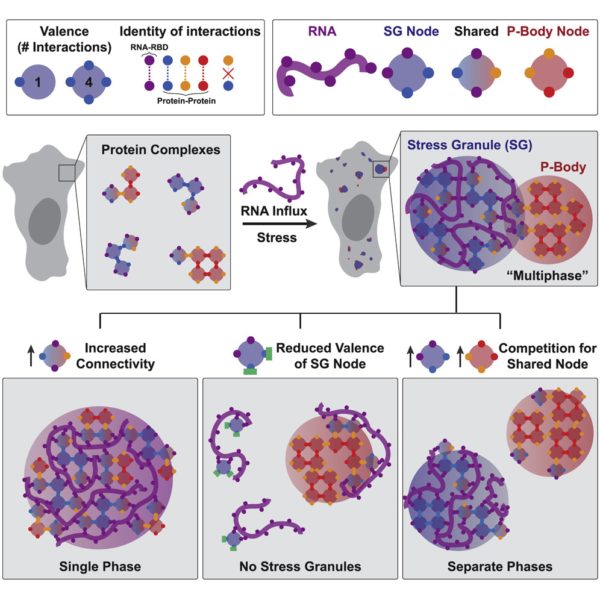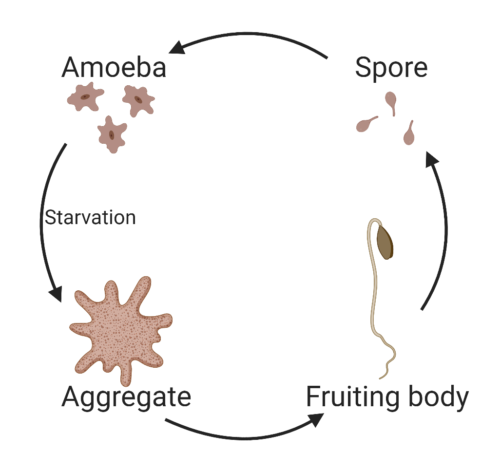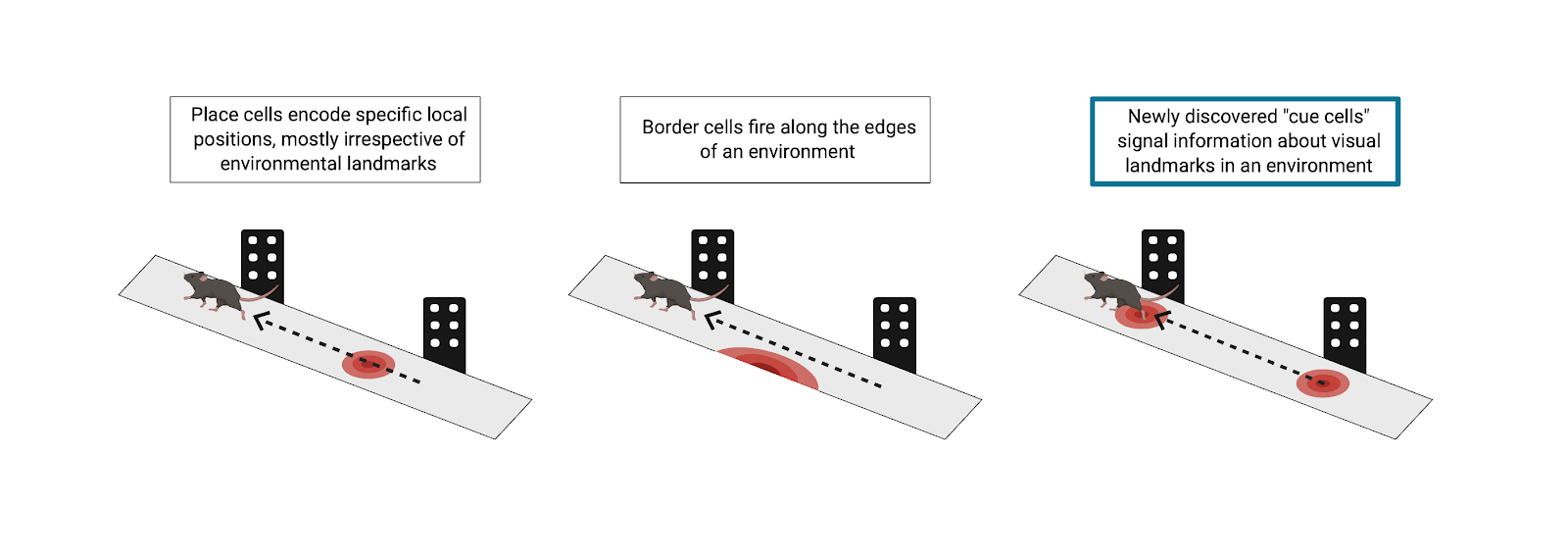Review written by Rebekah Rashford (PNI)
There is much consensus that negative stressful early life experiences impact the development of an individual. Numerous studies in humans have linked childhood adversity (e.g., loss of a caregiver, abuse, natural disaster, etc.) to an increased risk for depression and other psychiatric disorders in adulthood. In other words, the more an individual has experienced negative stressors in childhood, the more likely that individual is to develop depression or anxiety when they experience mild stressors in adulthood. This heightened sensitization and increased risk of mood disorders in humans has a parallel observation in rodents, specifically mice, which are used as model organisms in the discussed study. Principal Investigator Catherine Jensen Peña and colleagues at the Icahn School of Medicine at Mount Sinai were interested in exploring the epigenetic effects of such early life stressors on reward circuitry in the brain. Throughout this work the authors posit, as does much of the early life stress (ELS) field, that there could be epigenetic mechanisms at work leading to the aforementioned risk of mood disorder development.
Continue reading



